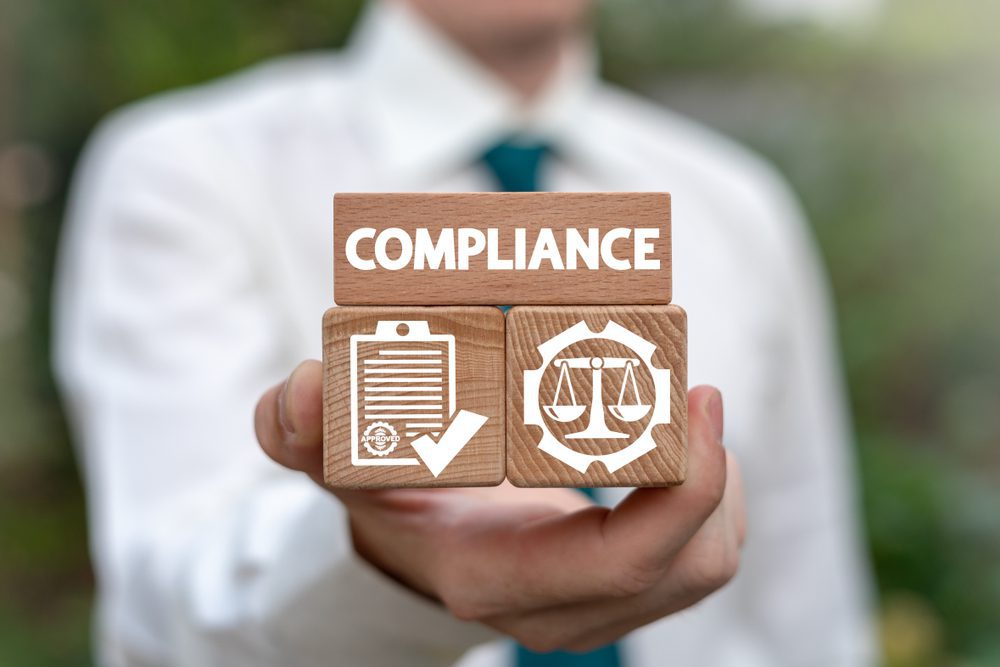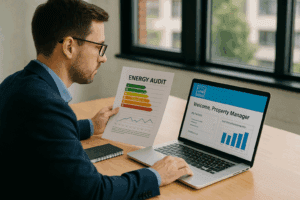The energy industry is always changing. Keeping up with the latest regulations and laws to remain compliant can be overwhelming for a business. It’s essential for businesses to have expert input on ways to simplify compliance management so that operations run smoothly and costs are kept low. That’s why hiring an energy audit law compliance consultant is key — they can provide the guidance needed to ensure your company meets all legal standards while staying ahead of new legislation in the market. Read on as we discuss what makes consulting important in this field and how it impacts your bottom line!
Basics Of Energy Audit Law Compliance
It’s important to comply with the energy audit laws that pertain to your business. A good energy audit will review your current energy usage data and help you identify areas of improvement. According to the findings from an energy audit, companies can save considerable money by investing in energy efficiency improvements. It’s important to note that energy audits may vary state-by-state, so it pays to do proper research about your area’s requirements for compliance. Being compliant doesn’t have to be as daunting as it seems! So make sure you’re ready for an audit, and enjoy all the savings that come with a well-managed facility.
Importance Of Energy Audit Law Compliance
Ensuring your business complies with the laws and regulations concerning energy audits can help you reduce your carbon footprint and operating costs. It’s important to understand the basics of what needs to be done to stay compliant.
Start by collecting data on energy use and compliance with all applicable government standards, assessing any energy efficiency measures taken previously, and planning to implement future energy conservation measures and energy efficiency projects.
Lastly, establish monitoring systems to track progress toward carbon dioxide emission reduction goals. Understanding these basic steps can ensure your company is on the path toward sustainable energy practices and a stronger carbon footprint.
 Reasons For Conducting Energy Audits On A Regular Basis
Reasons For Conducting Energy Audits On A Regular Basis
Regular energy audits are important to any company’s overall sustainability strategy. Energy audits comprehensively review a business’s energy use habits, identifying ways to improve efficiency and reduce costs. Here are some of the key reasons for conducting energy audits on a regular basis:
Monitor Energy Usage
Regular energy audits help monitor a business’s energy usage and identify areas where improvements in energy prices can be made. Energy audits provide an accurate assessment of how much energy is being used by each department, as well as potential areas for cost savings.
Identify Cost Savings Opportunities
Regular energy audits can help building owners identify potential cost savings opportunities that may not have been previously considered. For example, replacing inefficient equipment with more energy-efficient versions can help reduce energy costs over time.
Improve Efficiency
Regular energy audits help identify areas where a business’s operations could be made more energy-efficient buildings and provide specific recommendations to improve efficiency. This can include reducing the amount of time heating, or cooling is running, installing more efficient lighting and insulation systems, or using other energy-saving strategies.
Reduce Environmental Impact
Regular energy audits help businesses understand their environmental impact and take action to reduce it. By reducing their energy usage, businesses can reduce the number of pollutants they emit into the atmosphere, saving money and helping to protect the environment for future generations.
Reduce Carbon Footprint
Regular energy audits allow businesses to identify ways to reduce their carbon footprint, helping to combat climate change and move towards building a more sustainable future. Reducing the amount of energy businesses use can help lower greenhouse gas emissions and contribute to global efforts to reduce climate change.
Ultimately, regular energy audits can help businesses save money, reduce their environmental impact and become more efficient. By understanding a business’s current energy use habits, regular energy audits allow companies to take meaningful steps towards reducing costs, reducing energy consumption, improving efficiency and protecting the environment.
Types Of Energy Audit Process
There are two main types of energy audit processes: the walk-through method and the comprehensive approach.
The walk-through audit is usually a short survey conducted by an energy auditor to identify potential issues or opportunities for improvement. During this process, the auditor will review your building’s lighting system, HVAC systems, insulation levels, and occupancy patterns. The energy auditor will then recommend any necessary changes or improvements that can be made to your buildings to reduce energy usage and save money.
The comprehensive approach is a more in-depth audit involving a detailed analysis of all your building’s systems and components. This process typically takes several days or even weeks, depending on the size and complexity of your building. A comprehensive audit can provide an accurate picture of your building’s energy use and allow you to pinpoint specific areas for improvement. The results from this type of audit can be used to create a plan for more efficient operations, reduce energy waste, and maximize savings.
No matter which type of energy audit you choose, the goal remains to identify and implement changes that will save energy, reduce costs, and help protect the environment. With the right approach, an energy audit can be a powerful tool for improving your building’s efficiency and reducing operating costs in the long run.
Steps Involved In Conducting An Energy Audit
Assess energy use
The first step in conducting an energy audit is to assess the current energy use of the facility. This includes collecting data and information about energy consumption, such as energy bills, records of equipment operating times, and other relevant documents that can provide insight into how and when energy is used.
Identify areas of energy efficiency improvements
Once the current energy use has been assessed, the next step in the energy survey is to identify areas for improvement that can lead to increased energy efficiency. This may involve seeking opportunities to reduce energy consumption or improve system performance. The auditor should also consider potential modifications to reduce costs and increase savings.
Measure and analyze data

At this stage, the auditor will measure and analyze the data collected to understand the facility’s energy usage patterns better. This may involve testing equipment, inspecting building systems, assessing insulation levels and indoor air quality, or collecting measurements from meters.
Develop recommendations for energy conservation
Once the energy audit is complete, and all information has been collected and analyzed, the auditor can develop a list of recommendations to improve energy efficiency. These may include installing new equipment, improving insulation levels, upgrading lighting systems, and other measures that can reduce energy consumption.
Implement solutions
Finally, once the recommendations are in place, the facility should begin to implement various solutions to increase energy efficiency. This may include installing new equipment, upgrading insulation levels, replacing inefficient lighting systems, or making other modifications to reduce energy consumption. Monitoring and tracking progress should also be made to ensure that the solutions positively impact the facility’s energy usage.
Evaluate results
Once the recommended changes have been implemented, the auditor should evaluate the results to determine whether or not the desired energy savings have been achieved. This can help identify areas needing further improvement and ensure the facility operates optimally. The auditor will then make additional recommendations as needed to continue improving energy efficiency.
Things To Consider When Consulting The Energy Audit Law Compliance
When consulting energy audit law compliance, some important things must be remembered. One of the most critical elements is energy efficiency upgrades. These upgrades lead to energy savings that become increasingly necessary with more energy-intensive production.
Secondly, considering the square feet of facilities can help you determine your energy intensity and the necessary energy efficiency measures needed to stay compliant with laws in the area.
Lastly, utilizing the energy star portfolio manager may prove helpful in tracking energy use and giving guidance on the best opportunities for improving energy performance over time. This can give a comprehensive overview of energy use and tools to analyze existing data contributing greater clarity toward achieving full law compliance.
The Final Words
Compliance is a critical element of running an effective energy audit business. With the right strategies, a company can stay ahead of the trends and stay ahead of regulations by using energy audit law compliance consulting. This helps them to identify emerging issues that could impact their audit practices proactively and helps them to remain compliant going forward.
VertPro® is invaluable in keeping businesses updated with all applicable laws governing energy audits and navigating any conflicts between regulations. Investing in top-notch energy audit law compliance consulting is essential for success in today’s competitive market. Building owners would be remiss not to consider the potential risks of failing to do so.















